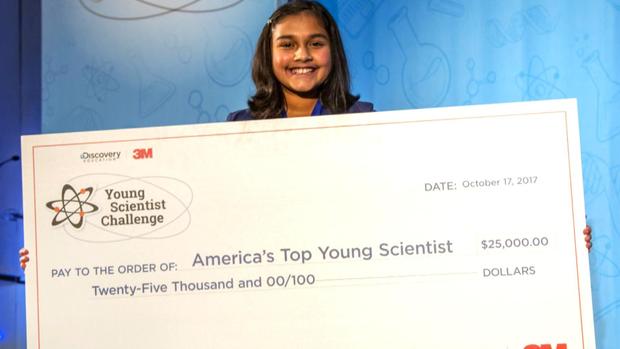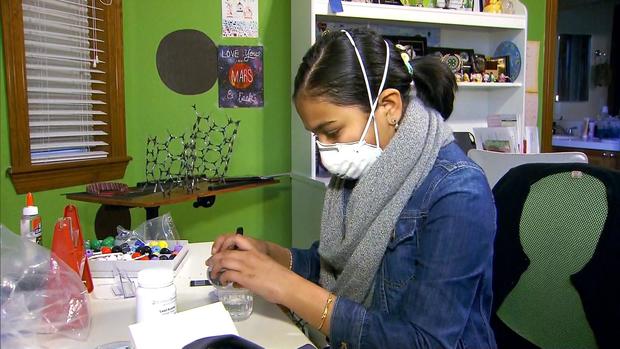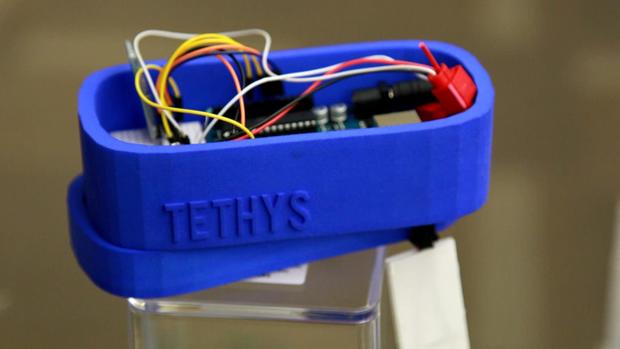LONE TREE, Colo. — Outside denver, a talented 12-year-old is getting national attention. It’s not for her music, it’s for Gitanjali Rao’s contribution to science.
“If my mom asked me what do you want for Christmas, I’d be like, lead,” Gitanjali said.
That’s right, lead, which Gitanjali needed for an invention.
“Imaging living day in and day out drinking contaminated water with dangerous substances like lead. Introducing tethys, the easy to use, fast, accurate, portable and inexpensive device to detect lead in water,” Gitanjali said in her presentation for the Young Scientist Challenge. She won the national competition for her invention.

Gitanjali Rao won the Young Scientist Competition for a lead detector.
CBS News
It was inspired by a real-world problem. “I’ve been following the Flint water crisis for about two years,” Gitanjali said.
In Flint, Michigan, nearly 100,000 residents drank lead contaminated water for more than a year.
“Lead is mostly harmful to younger children, about my age — giving them growth defects and potententially damaging their brain,” Gitanjali said.

Inspired by the Flint water crisis, Gitanjali Rao invented a lead detector.
CBS News
Gitanjali said that despite living in thousands of miles away from Flint, “that’s not something I want to go through, what the Flint residents went through .. our water quality’s just as important as doctor’s appointments or dentist’s appointments.”
If you’ve never tested your water, Gitanjali said “that’s a big problem!”
With Gitanjali’s device, instead of taking days to send water samples to a lab, her device detects lead in seconds using carbon molecules — and a mobile app.

Tethys, Gitanjali Rao’s lead detector.
CBS News
She’s one of many who love science at school, but one of the few who turned an idea into an invention, said teacher Simi Basu.
“I am so confident that she will be able to take it to the market if we keep providing her help,” Basu said. She said what makes Gitanjali different is that she is a “risk taker — she’s not afraid to fail.”
She said her next project is to create a “happiness meter which measures the amount of serotonin in your body or the amount of gamma rays and I still have to figure out how this works.”
When she does, the science world will be waiting.
© 2017 CBS Interactive Inc. All Rights Reserved.

